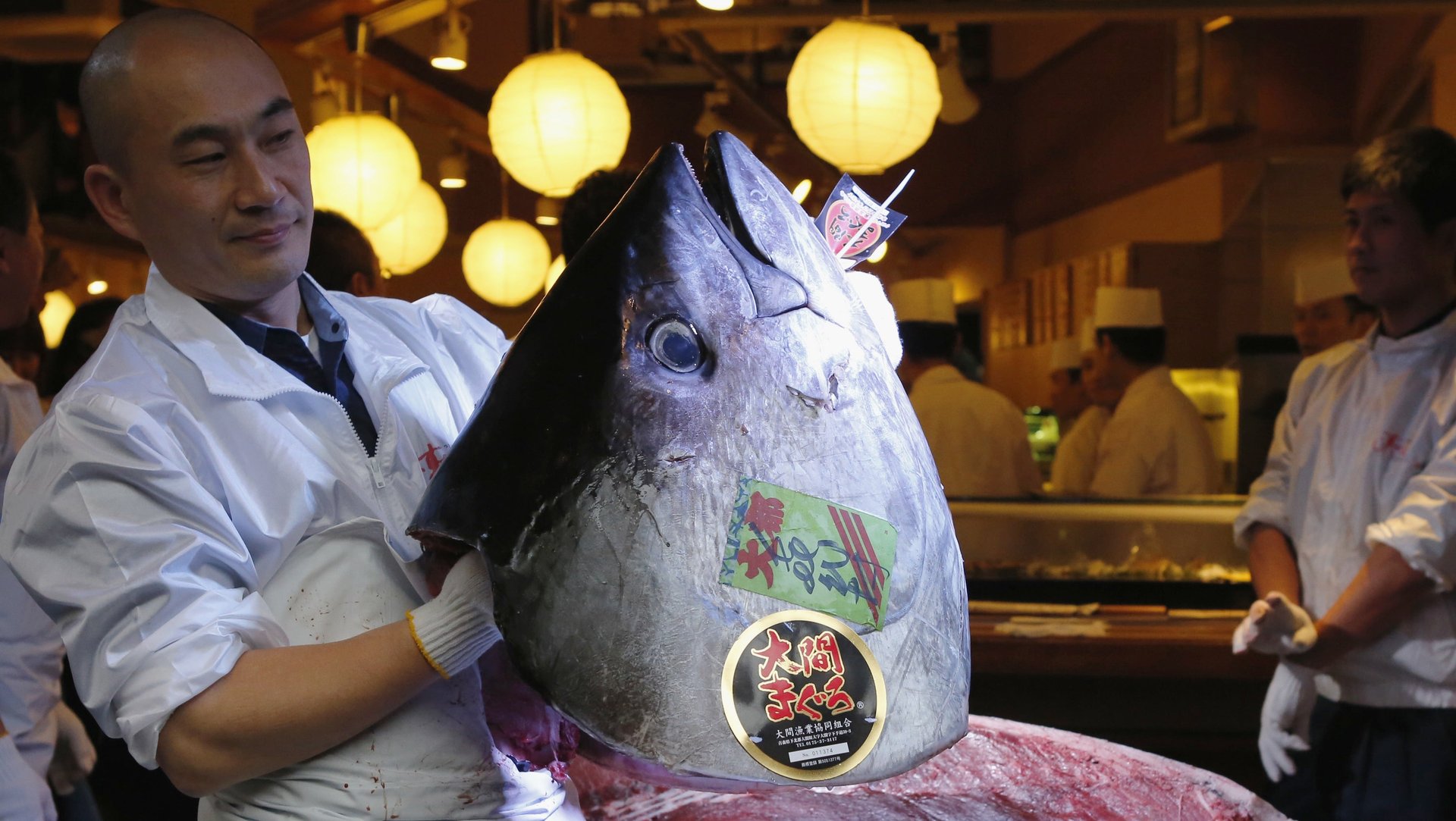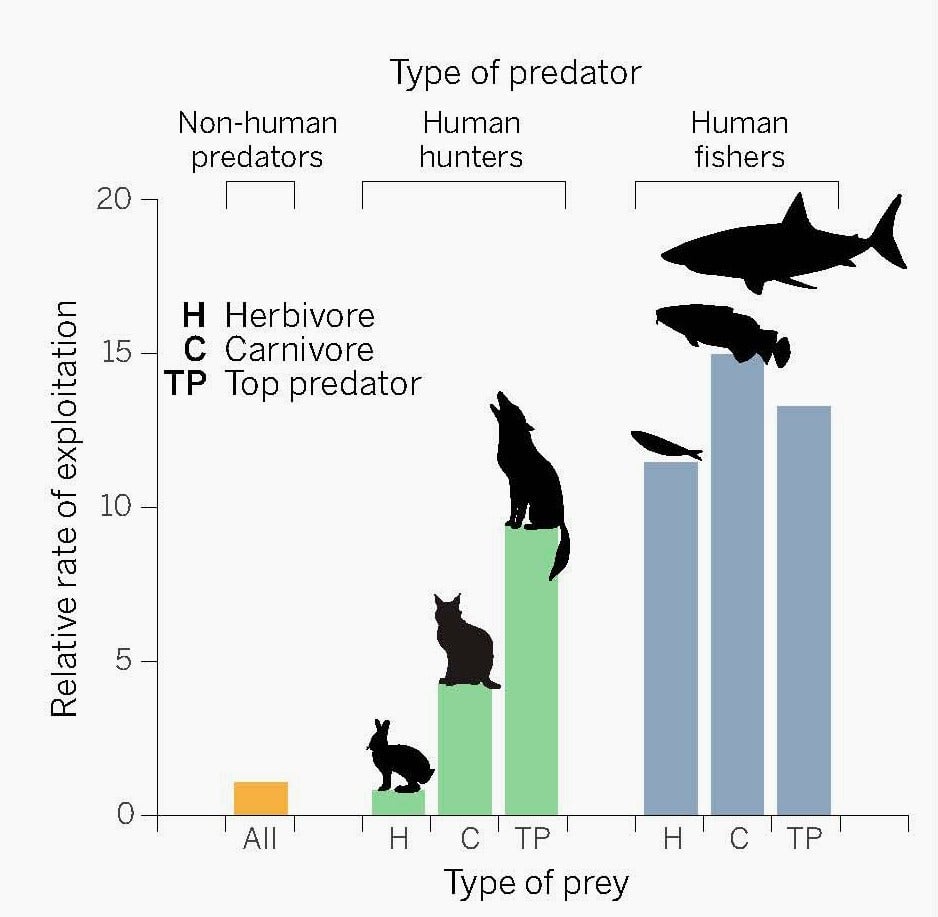Humans aren’t normal animals—we are unnaturally destructive super-predators
Imagine a fish-eating contest between a great white shark and a human. Odds would obviously favor the shark. But widen the contest to include all sharks versus all of humanity? Not a fair fight at all. Sharks have mouths, we have trawls. They have teeth, we have industrial fish-processing factories. They have stomachs; we have canneries and the freezer section at the local supermarket.


Imagine a fish-eating contest between a great white shark and a human. Odds would obviously favor the shark. But widen the contest to include all sharks versus all of humanity? Not a fair fight at all. Sharks have mouths, we have trawls. They have teeth, we have industrial fish-processing factories. They have stomachs; we have canneries and the freezer section at the local supermarket.
In fact, humans are no ordinary predators—they’re ”super-predators.” And our unnatural abilities are the subject of a newly published study by a team from University of Victoria in British Columbia.

It’s not just our tools, tech, and trade systems that make us unique. It’s how we apply them. Other predators mainly target juveniles, while humans kill up to 14 times more adult prey than other predators. Shooting Bambi’s mother and sparing Bambi is actually not a kindness: Killing adults during their reproductively fruitful years causes populations to shrink and can throw entire food webs out of whack.
This habit of killing the animals with the most reproductive capacity is particularly acute in the ocean, since mature fish can release millions of eggs a year, and many species grow more fecund with age.
The sea is different for another reason: the top-to-bottom effects of human super-predators on the food chain. On land, humans kill adult carnivores much more aggressively than we do herbivores. But at sea, humans over-plunder all layers of the marine food web more or less equally, from 10-foot tuna to tiny anchovies, says Boris Worm of Dalhousie University, in a companion piece (paywall).
That’s due mostly to industrialized fishing operations, freezing technology, and labor specialization that makes relatively a few people hugely productive. The result is unprecedented in human history. While early tools like projectile weapons and dog domestication helped us kill prey more easily, more recent advances in technology have industrialized the process, says Chris Darimont, professor of geography, who led the study.
“The contemporary forces are stunning and underline just how peculiar a predator the human species has become,” he says.